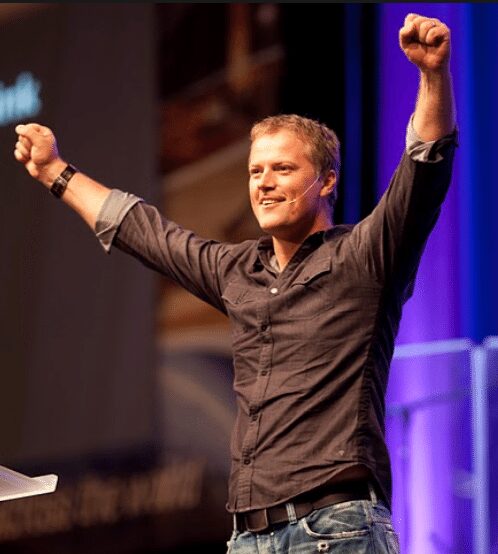
My therapist likes to keep thing simple, which is useful for me. She tells me that there is a triangle in abuse: the ‘abuser’, the ‘victims’ and the ‘observers’ (observers are people who knew but never reported appropriately). I personally find it quite easy to think about John Smyth, the abuser. The victims too. But considering the observers is much, much more difficult. Technically speaking, as a victim, I am ‘excused’ from being an observer (no matter how much I feel like one) but the observers in the John Smyth case include my closest family, everyone who has supported me throughout the years.
They also include all the individuals in all the institutions who also know the story but did not report appropriately. Mark Ruston, your friend, in 1982, when he wrote his report in 1982 became an observer because he wrote that he believed that a criminal act had been committed and he was one of the many people, almost 35 years ago, who failed to report to the police. A decision that had terrible consequences. But a particularly well-informed one.
You, archbishop are also an observer. How and when you became one I know that you will want to tell me. And here’s the difficulty about being an observer. You have to ask yourself. “I knew about John Smyth. I become aware about some of the things that this abuser did, I have ‘observed’ them. Can I look myself in the mirror and honestly say that I did everything I could to report to the correct authority all the things that I knew? Did I give the people who might bring the abuser to justice every scrap of information that they might need? And, if I didn’t, then thinking very carefully about this – whose side have I been on, all this time? The side of the victims. Or the side of the abuser?”
It’s a very troubling position to find yourself in. I totally understand this and that was why, when Cathy Newman interviewed me after the showing of Channel 4’s second news report, I said on camera that I wanted to give you some time to reconsider the statements that you’ve made. I’d like to believe that you will find somewhere where you can be alone, without the advice of anyone else other than your own conscience and God. And when you have decided that you would like to talk, I’m now actually thinking that it’s not really important that we meet. In fact, there’s no reason for us to meet at all. Better not to. Because I know that everything that you tell me, you would happily say to the whole world.
Best wishes, and as we victims of John Smyth are always saying to each other – ‘I hope you’re okay’.
The Telegraph (Link)
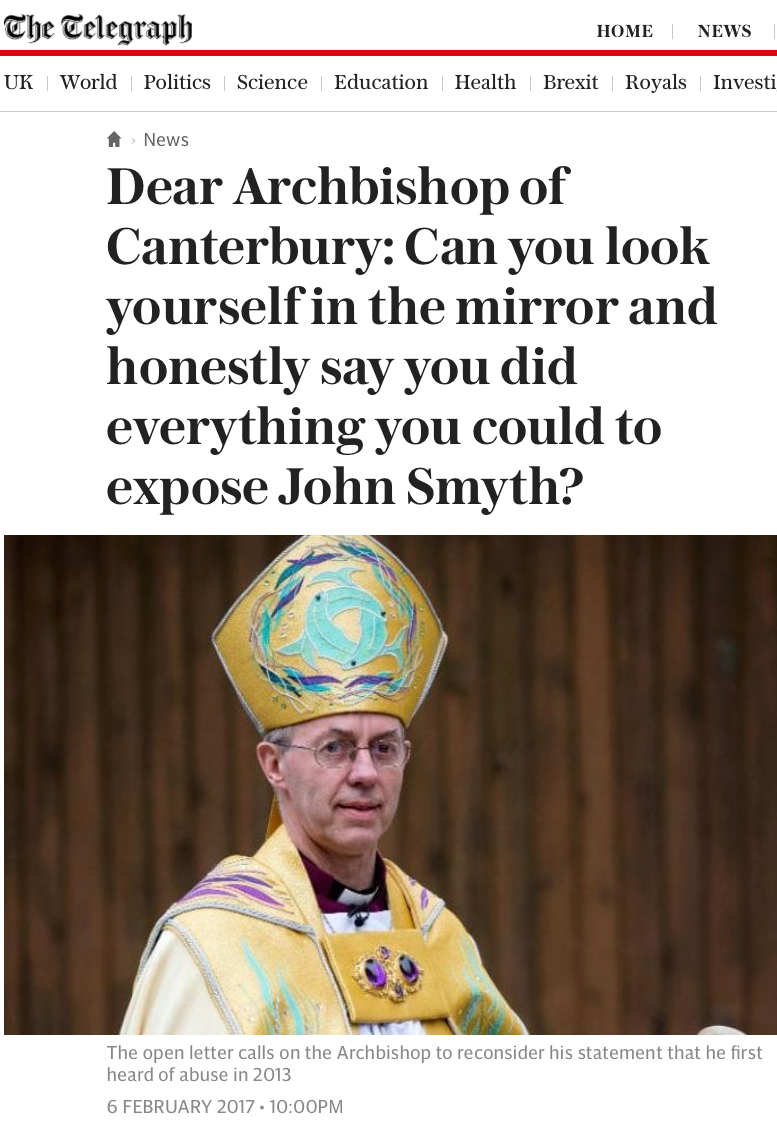
Dear PJ Smyth: Can you look yourself in the mirror and honestly say you did everything you could to expose John Smyth?
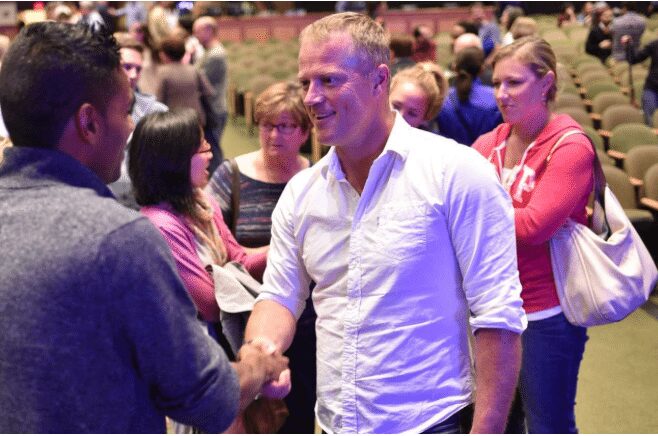
“You, [PJ Smyth] are also an observer. How and when you became one I know that you will want to tell me. And here’s the difficulty about being an observer. You have to ask yourself. “I knew about John Smyth. I become aware about some of the things that this abuser did, I have ‘observed’ them. Can I look myself in the mirror and honestly say that I did everything I could to report to the correct authority all the things that I knew? Did I give the people who might bring the abuser to justice every scrap of information that they might need? And, if I didn’t, then thinking very carefully about this – whose side have I been on, all this time? The side of the victims. Or the side of the abuser?”
PJ Smyth has now published three “Open Letters.” He has yet to speak truthfully. You can expect there will be at least one additional “Open Letter,” perhaps more. In due time the truth will be revealed. We shall see just how “firmly committed to reporting any form of child abuse to the authorities” PJ has been.
“If religion cannot tell the truth about itself, it has nothing to say. Hypocrisy – professing one thing and performing the opposite – is the greatest moral violation. In approaching the crisis of clergy abuse, truth must be the preeminent goal. Truth – wherever found, however discovered, whatever it exposes – must be the agenda for any exploration of abuse by clergy. Anything that impedes unflinching directness, honesty, or clear unambiguous communication and confrontation of the facts will perpetuate the secret system in which abuse can continue and flourish.
All concerned citizens have a stake in the honesty of religious leaders. They should be a moral and cultural resource. Religion needs the help of all concerned women and men. Everyone is victimized by a system that fosters or tolerates abuse. It is not unholy or unseemly to be vitally interested in the performance of moral leaders. If religion was taught anything by the German holocaust of the Jews it is that standing by silently does not absolve from guilt. Institutional structures and behaviors are not above question or challenge.”
A.W. Richard Sipe, “Sex, Priests and Power,” page 45
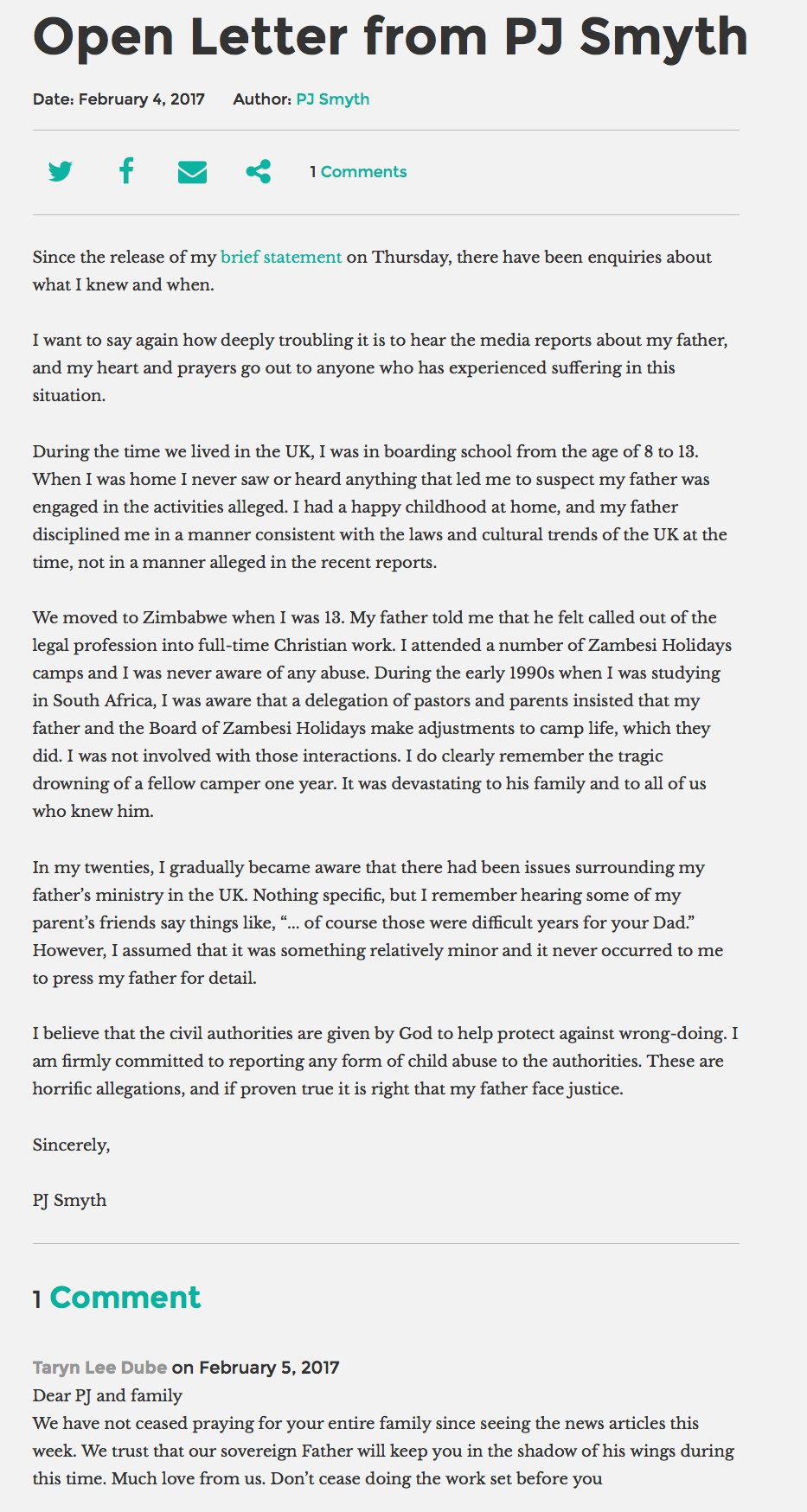
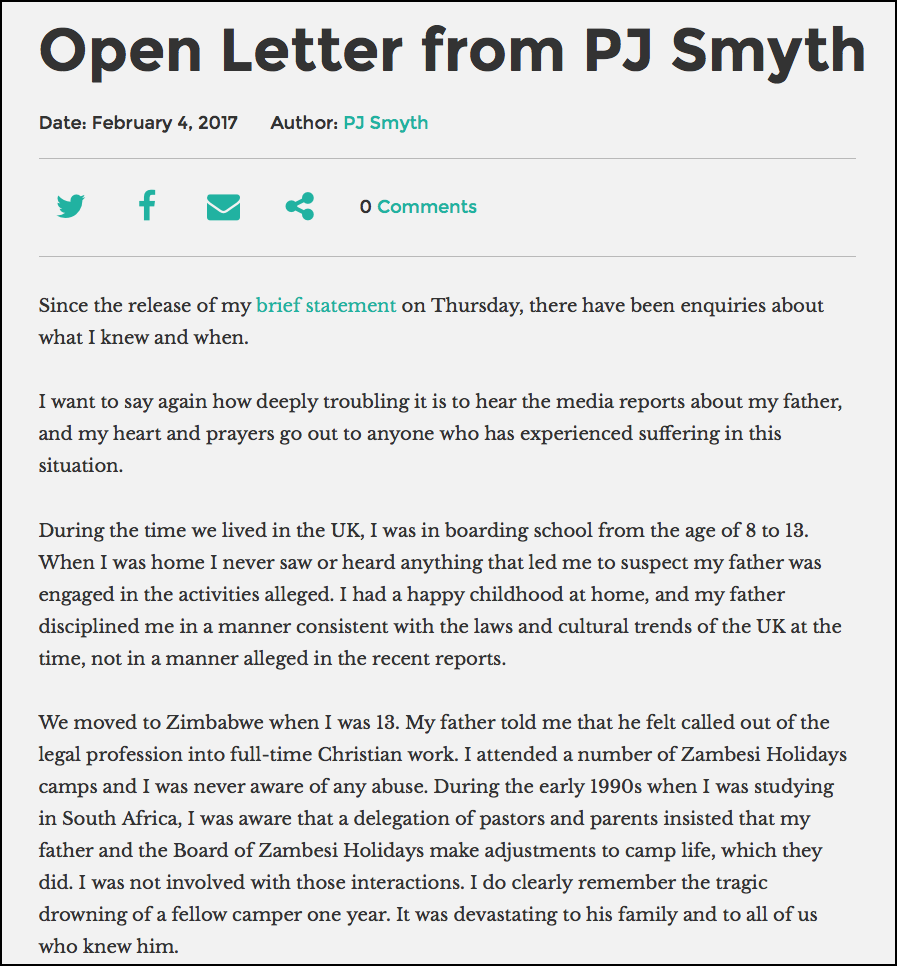
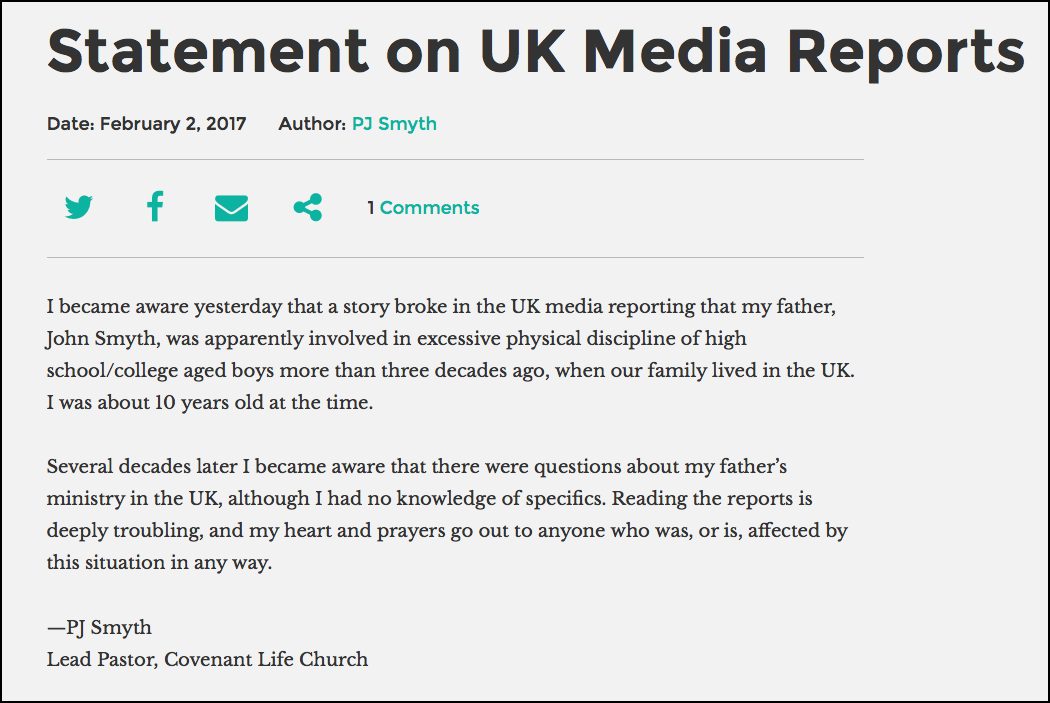
“I wanted to give you some time to reconsider the statements that you’ve made. I’d like to believe that you will find somewhere where you can be alone, without the advice of anyone else other than your own conscience and God. And when you have decided that you would like to talk, I’m now actually thinking that it’s not really important that we meet. In fact, there’s no reason for us to meet at all. Better not to. Because I know that everything that you tell me, you would happily say to the whole world.
Best wishes, and as we victims of John Smyth are always saying to each other – ‘I hope you’re okay’.”